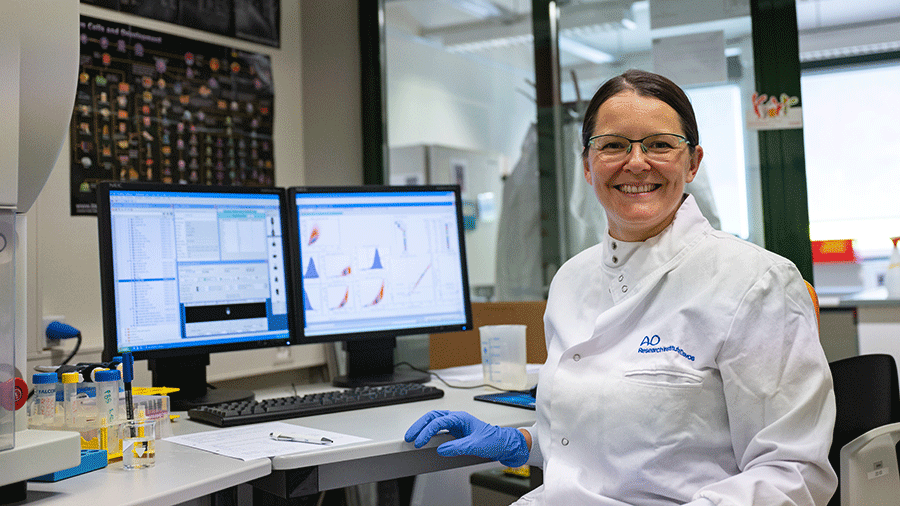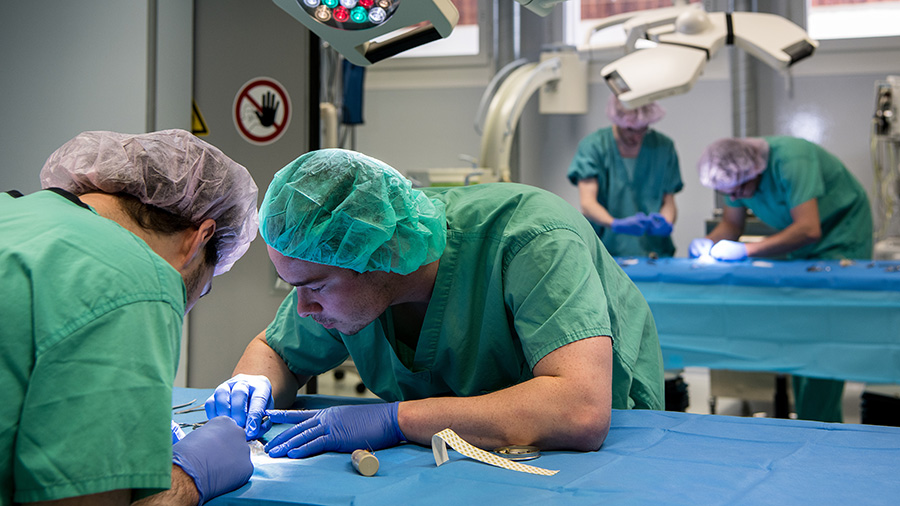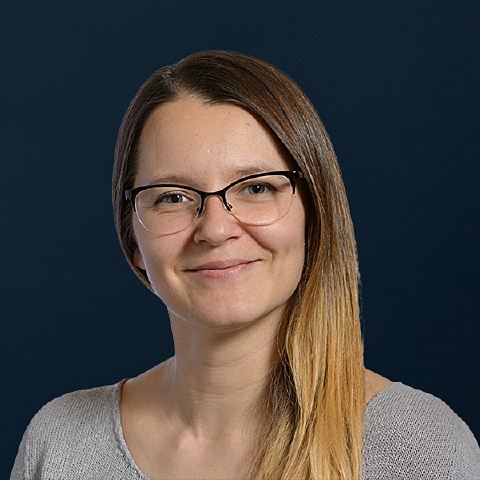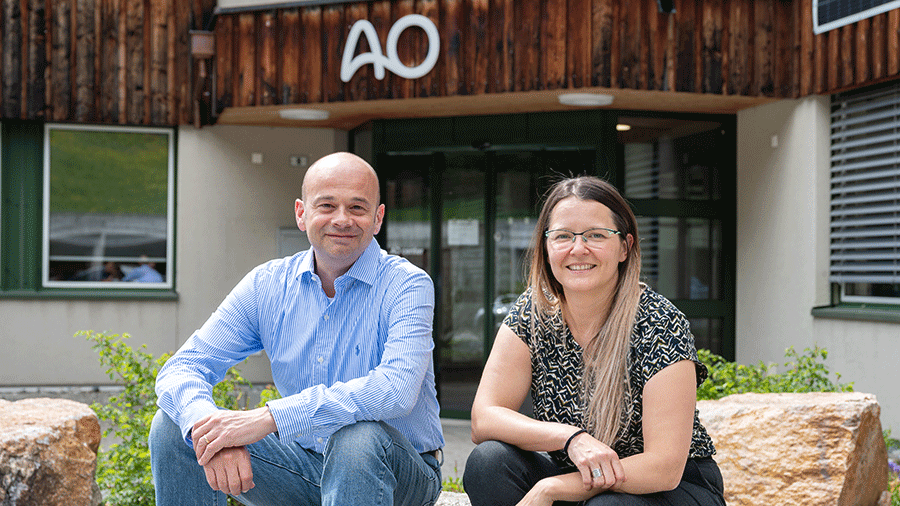Voices for change: AO women in STEMM

A commitment to questioning preconceptions lies at the heart of the scientific method, and AO Research Institute Davos (ARI) research scientist Elena Della Bella, PhD, believes the same rigorous quest for knowledge can be applied to level the playing field for underrepresented groups in research.
Della Bella, who joined ARI in 2018 and today is a research scientist and deputy focus area leader in Progenitor Cell Biology and Mechanoregulation, describes her complex research area as “basically studying stem cells mainly for regeneration of bone and cartilage.”
Della Bella, who grew up in Italy, can hardly recall a time when she wasn’t asking questions about the world around her.
“I have an older sister and when she was studying the human body and the digestive system in school, she explained to me, ‘Okay, so you eat your food, and then the food goes here and then it does this,’ and I was fascinated,” she recalled. “I think I asked her 100 million questions—just to get her to repeat to me what was going on in the human digestive system.”
Teachers made a significant contribution to Della Bella’s journey as a student and research scientist.
“It’s also because of some of my teachers—especially my math and science teacher—both in middle school and high school that I became interested in science,” she said. “When I started high school, I had a lot of interests: I wanted to do physics, philosophy, languages, this, that, and the other. But then when I started the genetics course later in high school, I thought, ‘This is something I really like.’”
You might also be interested in:
- Reading the complete voices for change series
- Joining the AO Access Mentorship Program
- Listening to the AO Access to success podcast
Willingness to question
One teacher in particular impressed upon Della Bella the importance of rigor and precision in science and those lessons have stayed with her. In high school, another teacher emphasized a historical point of view.
“She pointed out that science is not only a process of creating knowledge but also disproving that knowledge if an advancement tells us it was wrong or inaccurate,” she said. “If we don't question ourselves and challenge our ideas as scientists, we are not doing our job—actually, we are doing a terrible job.”
Della Bella is quick to point out that, while individual researchers can make important contributions toward creating knowledge, science is a group effort.
“So, it’s not just about one person being right. It’s more of a collective brain that advances science. For example, I can do a bit, but I cannot do everything,” said Della Bella. “As scientists, we always need communication, collaboration, and respect. That’s truly important for the advancement of science and for the advancement of our goal of improving patient outcomes.”

“We have to respect one another because science is not about us—it’s about what we want to achieve. Ultimately, our work is about improving patient care.”
Elena Della Bella
ARI: an open environment
ARI staff often describe themselves as members of “the ARI family,” and that’s an environment Della Bella appreciates.
“The ARI environment is really quite open: you can go around and talk to everyone about your projects,” the scientist said. “I made a lot of friends at ARI when I first joined as a visiting postdoc there so I really felt at home when I joined the staff in 2018.”
Now five years into her ARI career, Della Bella credits her mentor—ARI’s Prof Martin Stoddart—with making significant contributions to her professional development.
“He gives us the freedom to express what we want to say and provides an environment where we can disagree with him—and that’s already different from many other research environments,” said Della Bella. “He also understands the different people on his team and is able to advise us, suggest opportunities, and encourage us. He really takes the time to understand us as individuals.”
Barriers to overcome
That appreciation for a diverse array of professional strengths, backgrounds, and personalities is something Della Bella shares with her mentor. While she does not believe she has encountered barriers due to her sex and gender, she is keenly aware that women in some areas of science, technology, engineering, mathematics, and medicine (STEMM) are not so fortunate.
“I have had colleagues tell me that women sometimes are discouraged from pursuing residencies in certain medical specialties because those residencies might be perceived as ‘too hard’ for a woman,” she said. “For example: ‘Why do you want to do this? You’re a woman. Maybe you should do something that is less demanding and gives you more freedom to have a family.’”
Those are barriers to be overcome, she said, because the advancement of science depends in part on diversity and inclusion—the “collective mind.”
“When we are all alike, can we really challenge our questions from a different perspective?” she asked. “We don’t want multiples of ‘me’ to do research. We need others to challenge our ideas. And different perspectives come not only from what you study—it’s your complete background that helps you tackle problems from a different angle. The basic thing is respect. We have to respect one another because science is not about us—it’s about what we want to achieve. Ultimately, our work is about improving patient care.”

“If we don't question ourselves and challenge our ideas as scientists, we are not doing our job.”
Elena Della Bella


